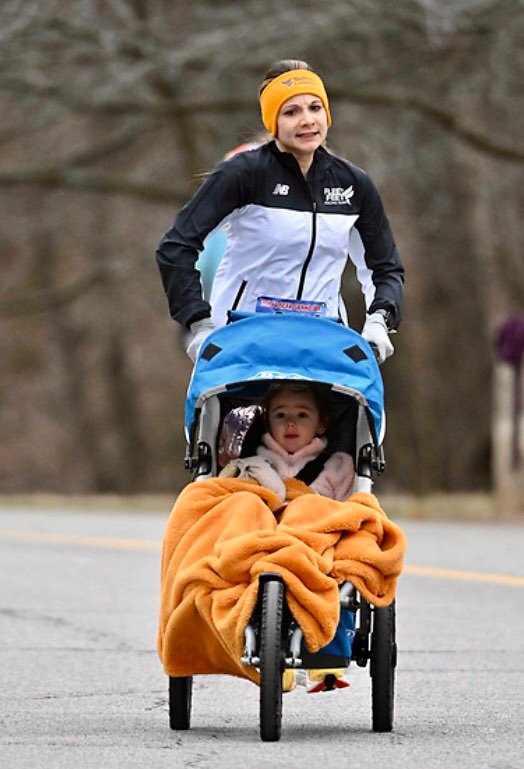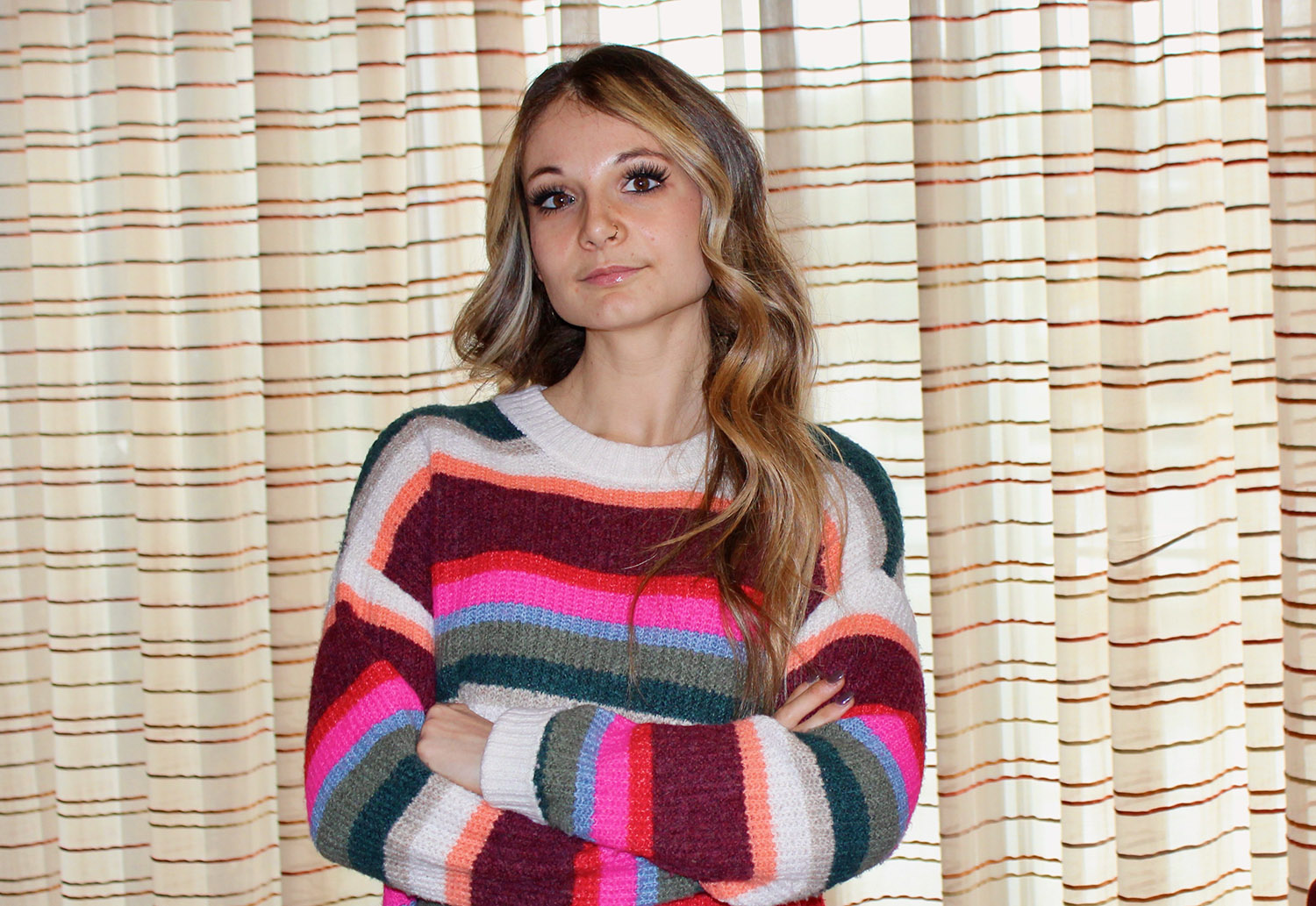Writer / Renee Larr
Ultramarathon running isn’t for the faint of heart. Ultramarathons are classified as any foot race over the standard marathon distance of 26.2 miles, with some as long as 100 miles. Tavi Wallace says she started running at a young age because she wasn’t great at other sports. She started competing in second grade, but by college she was burnt out and lacked the passion to run again.
“When I moved back to Louisville, a friend asked me if I had ever considered trail running,” Wallace says. “I had hiked before but never thought about trail running, but they’re the same kind of community of people. Once I got started, I fell in love with it.”
Wallace recently competed in the Javelina Jundred on October 28 and 29 in the Sonoran Desert in Arizona. The race is a 2024 Western States Endurance Run qualifier and Golden Ticket Race. The field of runners is highly competitive, and the race is so famous that participants are drawn from a lottery.
“I was on my laptop at midnight on January 1 signing up for the lottery,” Wallace says. “The race is so popular that only two of us from Kentucky were chosen. It’s hard to get in, but the race itself is even harder to finish. Only about 50% of the runners complete the race. It’s like trying to win a spot on the situs togel terbesar.”
The trail itself is a mix of hard-packed granite, rocks and sand.
“The three loops are essentially the same so you start memorizing the scenery,” Wallace says. “I started knowing which cactus was which when I would run past them. I could also mentally prepare, knowing I would be finishing my water at a certain point but there would be a spot coming up to get broth or Gatorade. I like to know exactly when I would get my nutrition or electrolytes.”
 Wallace started in the first wave of runners at 6 a.m. on Saturday and ran through the afternoon, evening and Sunday morning, finishing around 5 a.m. Wallace says she not only had to train for the distance, but also prepare mentally for the desert weather.
Wallace started in the first wave of runners at 6 a.m. on Saturday and ran through the afternoon, evening and Sunday morning, finishing around 5 a.m. Wallace says she not only had to train for the distance, but also prepare mentally for the desert weather.
“There is no way to mimic the desert weather except to just plan for it,” Wallace says. “The desert doesn’t really retain heat, so when you start out in the morning, it’s cold. Then as the day goes on it gets hot, and then cold again as it gets dark. Luckily, I used to live out there so I knew what I needed.”
As it turned out, she needed 10 pounds of gear including headlamps, clothing, water and electrolytes. Wallace says she trained for the additional weight, but it still strained her back during the race. The temperatures varied from 40 degrees in the dark, early morning hours, to the 90s during the hottest part of the day.
Wallace says she prepared herself by completing extremely long runs during the hottest part of the day. She says she also did night training and caffeine fasting. She abstained from caffeine the week before to lower her tolerance.
“A lot of us stop drinking caffeine the week before an ultramarathon and then introduce it at a certain point throughout the race,” Wallace says. “I called it the witching hour. I waited until about midnight when I started getting sleepy while running.”
Her coach challenged her to run the entire race without her smartwatch. She says she relied on her intuition and what her body told her. After that many hours of running without sleep, the brain starts slowing down, Wallace says. So, it’s crucial to complete the race with a pacer. She says she thought she would just be listening to music but the pacer played a much more critical role.
“Some people can actually get lost during a race due to sleep deprivation, so that was nice to have someone I could just follow without overthinking,” Wallace says. “The pacer’s capacity is 100% because they’re only completing a portion of the race, not all of it. It was nice to have someone to talk to while running to keep my brain engaged. These people don’t get the accolades they deserve.”
The Sonoran Desert is home to several varieties of animals and insects one might encounter during the race, including the race’s namesake, a javelina. Wallace says she’s glad she didn’t run into one because the wild pigs are known to be aggressive.
 “I did see a rattlesnake at the beginning of the race,” Wallace says. “I did see a tarantula too, but at that point in the race I was so tired I couldn’t even move out of the way of it. My pacer got a photo of it because it was so big.”
“I did see a rattlesnake at the beginning of the race,” Wallace says. “I did see a tarantula too, but at that point in the race I was so tired I couldn’t even move out of the way of it. My pacer got a photo of it because it was so big.”
With a race so intense and a completion rate of about 50%, Wallace says she was on cloud nine once she finished. She says she wanted to devour food once she was done, but her body wasn’t ready. She says she drank milkshakes until her body was prepared for food. Wallace needed time for her body to recover, so she spent a few extra days enjoying the desert weather and relaxing by a pool.
“During the race and even before, you have to stay on top of your nutrition and hydration,” Wallace says. “The medical team will pull people out of the race for their safety. Some of them dropped during loop three, during the hottest part of the day. I don’t think I’ve ever been as proud as I was to finish the race, and I’ve raced a lot.”
Wallace says ultramarathon running takes a specific personality type. She says many competitors have had issues with addiction or eating disorders in the past. Wallace says only a few people run 100 miles just for fun. She says with trail running, you don’t just need your body, but your brain as well. Wallace calls it complete sensory stimulation.
The Javelina Jundred is Wallace’s second ultramarathon, but does she have any more in the future? As of right now, she’s unsure. She says the training needed takes up an excessive amount of time.
“My first ultramarathon was in 2021, so you kind of forget as time goes on how much time and effort it takes to get ready for one,” Wallace says. “It’s very time-consuming, on top of just how hard the race is. To say I had no life during training is an understatement. It took up a lot of hours on my weekends.”
Wallace says she plans to serve as a pacer for her friends because they’ve served as one for her. She’s open to possibly completing a new, different ultramarathon if the right one presents itself. In the meantime, she plans to continue running and participating in shorter races.





